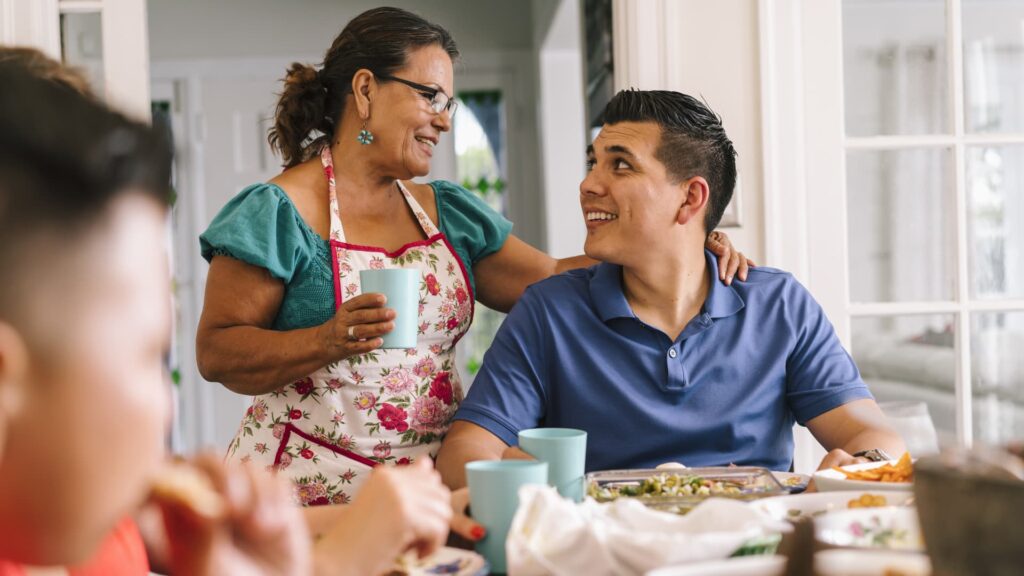It’s not uncommon for adult children to move back in with their parents after leaving home.
Nearly half, or 46%, of parents say they have an adult child aged 18 to 35 who has “boomeranged” home, according to a survey released in April by financial services provider Thrivent.
What stands out about this group of adults, however, is they tend to struggle more to manage their money. According to the survey, 46% of adult children currently living at home received high marks from their parents for their budgeting skills, compared with 63% of those who never moved back home.
While it’s unclear exactly why boomerang children are worse at budgeting, the discrepancy could point to a broader issue: Parents of adult children living at home might be more hesitant to have open and honest conversations about money, says Alex Gonzalez, a certified financial planner at Thrivent.
“If these adult children launch into their own adult lives without having some of those conversations, then yes, they’re going to record lower marks on their own financial skills,” Gonzalez says.
Furthermore, the problem can be two-fold, Gonzalez says. Parents who avoid discussing finances with younger children may fail to plant the “foundational seeds” necessary for financial independence.
And continuing to avoid important financial conversations when a child returns home as an adult can further hinder a boomerang child’s ability to navigate future financial decisions, Gonzalez says.
Talking to your adult children about money
When two of Gonzalez’s own children moved back home during the Covid-19 pandemic, he says two strategies helped ensure they still developed key financial skills: focusing on the positive aspects of eventually moving out and asking them to contribute to household expenses.
Gonzalez says he had open and constructive conversations with his kids about money, and made sure to emphasize all the upsides of a solid financial plan, such as affording their own place, gaining independence and building a life of their own.
He went through household bills line by line and asked his children to contribute to the cost of groceries and utilities. Gonzalez also had his kids research the cost of rent in the area and required them to set aside a roughly equivalent amount in a savings account every month to help prepare for living independently.
For Gonzalez, the goal wasn’t just to collect money — it was to guide his kids through a period of transition with structure, accountability and support.
“Every family has their own culture and approach to talking about money,” Gonzalez says. “[Our kids] knew that we would expect them to contribute to the expenses of the household. What we did though is help them in that challenging part of their lives.”
Are you ready to buy a house? Take Smarter by CNBC Make It’s new online course How to Buy Your First Home. Expert instructors will help you weigh the cost of renting vs. buying, financially prepare, and confidently navigate every step of the process—from mortgage basics to closing the deal. Sign up today and use coupon code EARLYBIRD for an introductory discount of 30% off $97 (+taxes and fees) through July 15, 2025.
Plus, sign up for CNBC Make It’s newsletter to get tips and tricks for success at work, with money and in life, and request to join our exclusive community on LinkedIn to connect with experts and peers.


